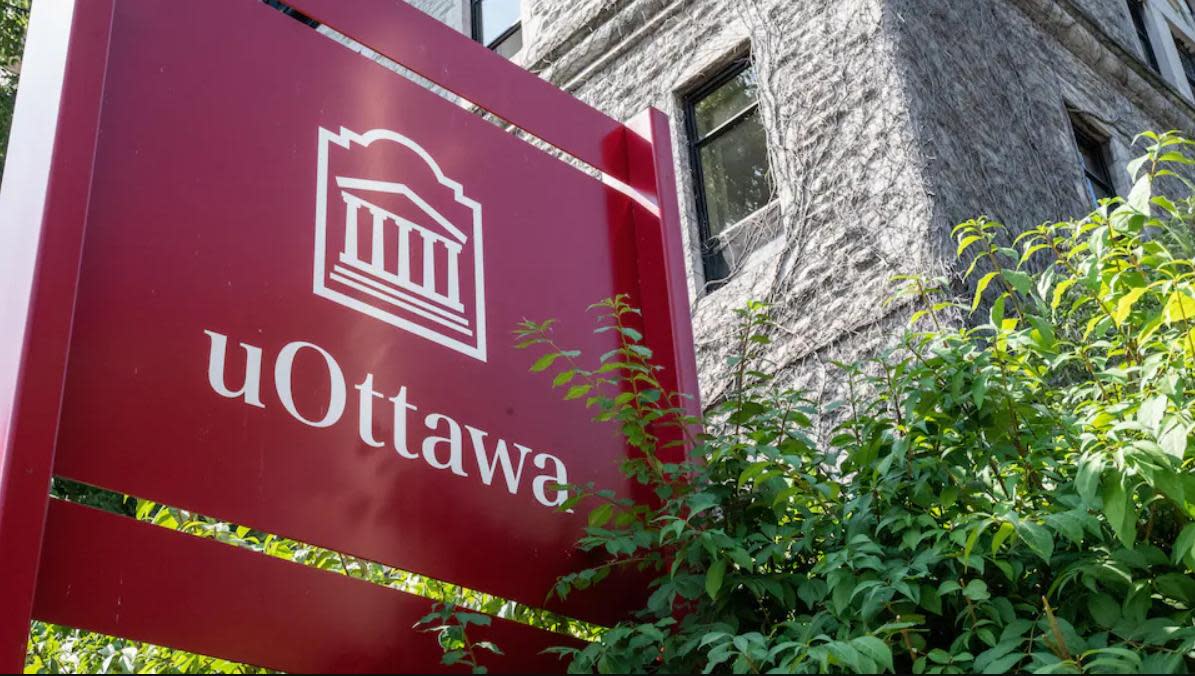Students vote to end funding for campus radio station CHUO

The University of Ottawa's independent campus radio station, CHUO 89.1FM, is losing the funding it gets from students after they voted to end a levy.
CHUO, a non-profit without charity status, has been in operation since 1991. On its website, it describes itself as elevating "underrepresented voices in our community."
In a byelection that ended on Oct. 13, students voted to end funding as of September 2024.
CHUO acting station manager Grant Stein said the levy of about $5 per student, per term adds up to about $360,000 to $380,000 per year for the station.
That makes up a large majority — about 80 per cent — of the budget, he added, though some money is drawn from advertising and annual fundraising drives. It's unclear whether the station can survive the blow.
"It's still really early to say definitively that it will end the radio station, but it's going to definitely be a different radio station," he said.
Volunteers might be key to survival
Stein said the station will have to look at relying even more on volunteers and may not be able to afford its existing space in the basement of a University of Ottawa building.
"It's going to have a major effect, not just on the staffing or the budget, but the potential of having to move," he said.
According to Stein, the station's ratings have actually shown a recent uptick in listeners. He said CHUO's programming is a source of information for a wide range of language and cultural communities.
Shows broadcast by CHUO include Black on Black, which covers the Afro-Caribbean community; Radio Irava, a Persian and English program focusing on Iran; the Ethiopian Show; Caribbean Flavour; Asianfluence; Amanecer Ranchero, which broadcasts Latin American, ranchera, corrido and banda music; the Somali Show; and more.
'No inquiry, no discussion'
The referendum question that ended CHUO's funding was one of 10 that students voted on during the recent byelection. CHUO had one day to create a campaign after it received notice about the question, Stein said.
Any one student can pose a referendum question. But to remove a student union commissioner, 1,000 students need to sign a petition, and to run for commissioner, 25 students need to sign, Stein pointed out.
"So that's all it takes. One student — and in this case, we understand it's a [student union] board member — who put [the CHUO question] up for referendum," Stein told CBC Radio's Ottawa Morning on Tuesday.
"It's not about people not listening. And that's really what's so disappointing about this; there's no inquiry, no discussion about it. It's just, boom."
Voter turnout was 7.7 per cent. That's a record high for the student union, but still quite low, Stein said.
Black on Black host/producer Adrienne Coddett, who is also a volunteer representative on CHUO's board, said linguistic and cultural communities rely on the station to connect.
"This type of radio, this particular radio station, serves the needs of a very important niche community that unfortunately sometimes don't get seen or heard through mainstream radio," Coddett told Ottawa Morning on Tuesday.
"What's at stake is voices that are important to these communities not being heard."
LISTEN | CHUO's Grant Stein and Adrienne Coddett discuss the funding cut:
'They have a huge history'
The Ontario Public Interest Research Group-Ottawa (OPIRG-Ottawa) also lost its funding (about $4 per student, per term) in a separate referendum question.
Maisy Elspeth, an advocacy commissioner for the University of Ottawa Students' Union, told CBC Monday students have always been able to put forward referendum questions, and that they're in charge of deciding which fees they pay.
She said she feels for CHUO and OPIRG, which will have "to seek external funding or some other way to continue their operations," she said.
"That does have an effect on campus life. They have a huge history on campus, in fact longer than [the student union]."
Elspeth noted the next election happens in February, and students could choose to put forward a new referendum question on the issue.
"We might see another referendum question to kind of re-evaluate this question ... as it comes into play in September of 2024. ... It'll be exciting. Any type of increased engagement is good to see from my end," she said.
Other referendum results
According to results posted on the student union's website, students voted to:
Reduce student union fees by about 11 per cent (85 per cent voted yes). Elspeth said that represents a cut of about $500,000 from the student union's budget.
Create a student pub levy ($3 per semester, which students can opt out of) to create and operate a student pub run by the student union.
Create an emergency hardship levy ($4 per year) for undergraduate students in short-term financial difficulty, to be administered by the student union (51 per cent voted yes).
Create a free printing levy ($1 per semester) to provide free printing services for undergrads, to be administered by the student union (59 per cent voted yes).
Create a Truth, Reconciliation and Decolonization levy ($0.75 per semester) for the uOttawa Indigenous Students' Association (64 per cent voted yes).
Create a levy for a volunteer crisis response team (about $1 per semester, which students can opt out of).
Recognize a student government for a new pharmacy program.
Voted against creating a levy ($1 per year, which students could have opted out of) to benefit the Muslim Students' Association (53 per cent voted no).


